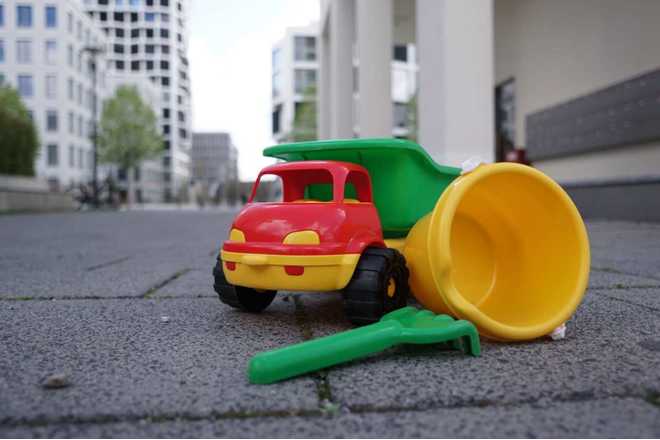16.407 Unterschriften
Petent hat die Petition nicht eingereicht/übergeben.
Petition richtet sich an: Bavarian State Parliament / Committee for Labour and Social Affairs, Youth and Family; Bavarian State Ministry for Family, Labour and Social Affairs
The present lockdown is posing immense challenges to all of us. Small children and their parents have so far been almost entirely neglected. Without clear guidance from the authorities, the families concerned are facing not only financial but also serious social and psychological difficulties. The aim of this petition is to help find solutions that meet the needs of the children – and their parents.
We therefore call for…
children of all ages – including the youngest ones – to be heard in political decision making.
a public discourse between scientists, politicians and practitioners with the aim of finding early solutions for all childcare facilities.
day-care centres to be given higher priority as the lockdown is gradually lifted.
transparent criteria for the gradual opening of day-care facilities.
attention to be given to the psychological, social and financial consequences of closing day-care centres for children and parents.
recognition of the need for childcare for all working parents, not only those defined as key workers (“systemrelevante Berufe”).
a halt to the enforced fall back on traditional family models with one main wage earner. The decision on which family model to follow is a matter for each individual family.
The following must be taken into consideration:
Solutions need to be devised that go beyond the traditional patterns of thought. The diversity of all forms of day-care must be considered – from institutions of varying size and orientation to baby minders, etc.
The safety of the staff must be borne in mind, as well as the ability of each institution to meet official requirements.
In the discourse between scientists, politicians and practitioners, the risks and benefits of reopening day-care institutions must be taken into consideration and soundly analysed.
Home office arrangements cannot be a medium- and long-term solution for day-care. They should only be used as a way of creating greater flexibility for employees and shortening travel time.
Politicians are therefore strongly urged to find practical solutions in cooperation with parents and employers. The aim must be to ensure work scenarios that meet the personal and work-related needs of both parents and employers.
It is right that the younger generation should show solidarity with and protect the elderly and risk groups. However, the young also deserve the solidarity of their (older) fellow citizens. We, the parents and children, are the generation that will be responsible for the human and economic future of our society. Therefore, our request to society is to allow our children to no longer live in solitary confinement and allow us to take care of our families!!
Begründung
It is not disputed that the containment measures against the pandemic were reasonable to prevent disasters such as in Lombardy or New York. We do not question these measures.
Steps to relax these containment measures are currently being discussed and implemented. However, the needs of young families are being completely ignored. In the ongoing discussion it remains unclear how day-care for young children will proceed.
In the recommendations of the Leopoldina institute, there is only one sentence relating to day-care institutions: “As smaller children do not keep to social distancing rules, and at the same time can pass on the infection, these institutions should remain in emergency mode until the summer holidays.” Based upon these recommendations, day-care institutions for young children are excluded from any steps to relax the lockdown.
However, in practice those children will not be able to keep to social distancing rules after the summer holidays, either. According to expert opinion (e.g. the Robert Koch Institute) there will not be a vaccine until the end of the year. How then will we proceed in the autumn? Obviously, there is no perspective whatsoever for young families and their children.
The recommendations of the Leopoldina institute emphasize the importance of perspectives to balance severe psychological and social impacts. In the recommendations for day-care institutions the needs of young families are virtually ignored. The composition of the working group (average age > 63; 92% male) suggests that this could be a reason for the weighting of the suggested measures. This is not an objective basis for political decisions.
No consideration is given to how parents of the 2.8 million children (below 6 years) in day-care* can meet their professional requirements in the medium and long term if no day-care facilities are available. Only a few professions are considered as key workers, so that for most of the population there are no options for day-care. But even expanding emergency care is not a comprehensive solution as it will only exacerbate social injustice. And home office arrangements ignore the fact that with young children it is simply impossible to combine work and care.
This professional state of emergency can be handled for a limited time, but it cannot be continued indefinitely. Many parents are taking annual leave or working night shifts to compensate for the work time lost in childcare. We cannot prolong this situation indefinitely without having severe psychological, social and financial consequences.
If the rules are relaxed step-by-step for other citizens, this will intensify the professional disadvantages for parents of young children. The fall back on traditional role models with one main wage earner is being enforced as the only possible family model. New family models, though, are not only ideological, but also economic decisions. Single parents and women are the main victims of these developments. If they are forced out of the labour market, the state will lose important qualified workers and tax income.
Pre-school institutions are not merely care facilities; they have an educational task. Younger children are being deprived of pedagogical processes that up to now have been considered indispensable. Instead, they are being cut off from social contact for a lengthy period, missing out on learning opportunities and falling behind in important phases of their development. The longer the lockdown continues, the more severe the impact will be on early learning. It is families in difficult social circumstances and immigrant families that are most severely hit in this situation.
A total of 3.8 million young children** are currently being banned from social contact. The long-term impact of such isolation over many months is not being questioned. Children need exercise, but playgrounds have been closed since the beginning of the lockdown. For many families, their family life must be organised in confined living spaces. This increases the potential for strain and conflict that can lead to violence.
Moreover, it is not clear if children really contribute significantly to the spread of the virus and if the closing of day-care facilities has been a significant factor in the containment of the pandemic. The studies available so far are contradictory. On the other hand, it is not disputed that children rarely suffer from severe symptoms of the disease. To deny the re-opening of day-care facilities dogmatically is incomprehensible, even more so as no plan exists for working parents.
- source: [https://www.destatis.de] ** figure represents children > 1 year and < 6 years; source: [https://de.statista.com]
Petition teilen
Angaben zur Petition
Petition gestartet:
22.04.2020
Petition endet:
12.07.2020
Region:
Bayern
Kategorie:
Familie
Diese Petition wurde in folgende Sprachen übersetzt
Neuigkeiten
-
Petition wurde nicht eingereicht
am 13.07.2021Liebe Unterstützende,
der Petent oder die Petentin hat innerhalb der letzten 12 Monate nach Ende der Unterschriftensammlung keine Neuigkeiten erstellt und den Status nicht geändert. openPetition geht davon aus, dass die Petition nicht eingereicht oder übergeben wurde.
Wir bedanken uns herzlich für Ihr Engagement und die Unterstützung,
Ihr openPetition-Team
Debatte
Noch kein CONTRA Argument.




